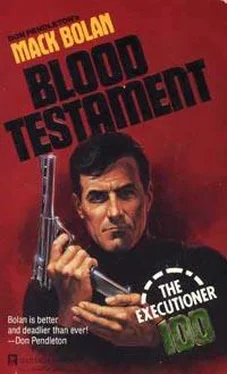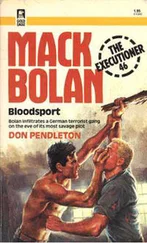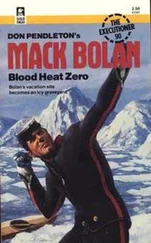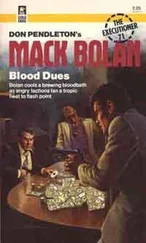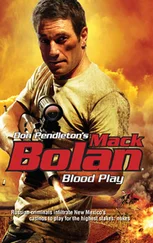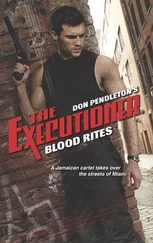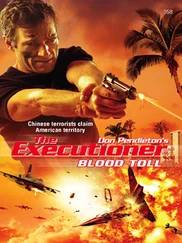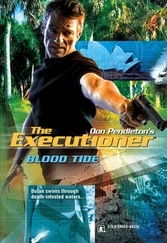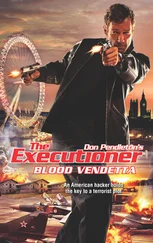"It wouldn't stand in court," the Company man responded. "Nothing ever went on paper, and the principals are dead. Assuming that you wanted to involve yourself with federal juries, any testimony you presented would be hearsay."
"You want evidence on paper, pally? Think about the notebooks Farnsworth left behind. Dumb move for such a cagey bastard, huh? He wasn't stingy with the names, I'll give him that. And all those memos that he cycled through the Xerox for a rainy day. I'd say it's raining pretty hard right now."
"The statute's run on that by now. It's ancient history."
"So, tell me why you're sitting here right now? Could be that you're embarrassed by the thought of all that shit resurfacing? Could be the statute doesn't run on murder... or should I be calling it assassination?"
Cartwright couldn't answer. He was rooted to his chair, jaws locked, his mind racing back across the years and miles. He flashed on Dallas and the motorcade turning off Houston, running west on Elm Street toward the triple underpass, the grassy knoll. There was a telltale puff of smoke behind the fence, an echo from the book depository, thunder in his ears... And he was instantly transported to Los Angeles, amid the crush of campaign workers at the great Ambassador Hotel. It was congested, even claustrophobic in the kitchen, but he saw the slender figure edging forward, reaching with the pistol to bestow his special blessing, firing blindly toward the ceiling while another shooter closed on Bobby's flank to pop the lethal caps at skin-touch range, secure in his silent weapon, the invisibility of his policeman's uniform.
For Cartwright, the recovery of here and now was the emotional equivalent of diving naked into icy water. For an instant, impact with the present took his breath away.
"All right."
"What's that?"
"I said all right."
"That's better. Arlington is your show, and you'd better get it right the first time, 'cause you won't get any second chances, dig it? I'll take out DeVries, and if the Landry bitch gets burned, we can consider it a bonus."
"Anything you say."
The mobster flashed a savage grin. "I like our little chats, don't you? Let's keep in touch."
He turned away and ambled toward the bar, dismissing Cartwright like a servant, carving one more notch out of his dignity. The man from the CIA retreated through the entryway, ignoring the gorilla's smirk, and took the elevator down.
For now he would be forced to play along, but there were ways of breaking Gianelli's stranglehold when this was finished. He had written history before, with Farnsworth, and he would again. It mattered little that no authors had recorded their achievements for posterity; it was enough that Cartwright knew and understood.
For now it was enough that Gianelli felt self-satisfied, his confidence inflated to the bursting point, assured that Cartwright was his stooge. When it was time to break the news, it would hit him that much harder.
Cameron Cartwright would be looking forward to that moment when he saw the recognition dawn in Gianelli's eyes. The recognition that it cut both ways, that nothing in the world was settled while you had an enemy still living.
But there would be other business first. With Hal Brognola and his batboy out in Arlington. The Bolan reputation did not frighten Cartwright. He had lived through Vietnam, the Bay of Pigs, Grenada, and the enemy had never laid a glove on him. Not yet.
It wouldn't be a piece of cake in Arlington by any means, but it would not be Armageddon, either. When the dust had settled, there would be time enough for Gianelli and his files.
Cartwright was taking first things first and keeping his priorities in order. It was the mark of a professional.
A string of well-placed calls had finally provided Susan Landry with the name of the investigator handling Brognola's case. She had been forced to call in some markers, to promise favors where she had no running line of credit with the source, but it would all be worth it if the story broke as large as she expected. Hell, if she could document her own suspicions of a tight sophisticated frame against Brognola, she was sitting on the local story of the year.
Her target was a Justice middle-ranker named DeVries. She didn't recognize the name, but that did not surprise her. Quiet sources told her that DeVries was on the inside, well-positioned on the ladder for a shot at bigger things if he could earn a reputation for himself. Brognola's scalp would be a step in that direction, provided that the case was strong enough to stand in court or force a resignation. Hal would never quit, she knew that much, and so DeVries would be expected to produce substantial evidence of criminal complicity, enough to validate the frame and send Brognola to the penitentiary.
She stopped herself, aware that she was running on emotions instead of facts. She had not seen the evidence against Brognola. When she had seen and heard it all, she might be calling for Brognola's crucifixion as well.
But no. Her reading of the man was accurate. Susan trusted her innate ability to see through falsehood, smell a lie that festered under the veneer of partial truths. Brognola wasn't giving anything away, might well be hiding something of importance, but he wasn't covering a guilty conscience. Susan would have staked her reputation on the fact that he was clean. In fact, she was prepared to do exactly that.
Which left her with DeVries. His office had been closed, but further digging had disclosed an address in the northwest section of the city. Susan tried his number — she had been surprised to find him in the book — and he had answered on the second ring. A strong voice, tinged with self-importance, radiating confidence. He had surprised her once again by readily agreeing to an interview; in retrospect, she thought that he had almost sounded eager for the chance to share his information with the media.
There are at least a million information sources in the nation's capital. Perhaps two-thirds are open to the public, occupied around the clock with grinding out releases, statements, broadsides and position papers. The remaining third are lumped together in the trade as "leaks," the unofficial sources of official information that was not designed for publication in the first place. Congressmen and senators, their secretaries, members of the bar, policemen, countless bureaucrats and civil servants. Each possessed a private ax that he or she would grind at carefully selected moments for the benefit of friendly ears. Their motives varied widely, from the purest altruism on through every shade of gray and black, but there was always something in it for the leak.
Before she met DeVries, Susan knew that she would have to ferret out his motive for revealing information that was surely classified. His willingness to talk supported her belief that Hal was being framed; a solid case would be preserved in secrecy until the prosecution had its day in court, while weaker evidence might do more damage in the headlines than before a jury. If DeVries was talking now, she realized, he might not have sufficient ammunition for a public showdown where the rules of evidence were rigidly enforced.
The lady stopped herself before her own imagination could betray her. She could not assess DeVries until they met, until she saw his evidence against Brognola. Only then would she be able to expound upon his case with any real authority.
She overshot his street, a cul-de-sac three blocks from Stanton Park, and doubled back. The condos that surrounded her were not especially elaborate, but Susan knew the price range and she was surprised DeVries could meet the payments on his salary from Justice. Something else to think about when she began assessing motivations and intent.
Читать дальше
